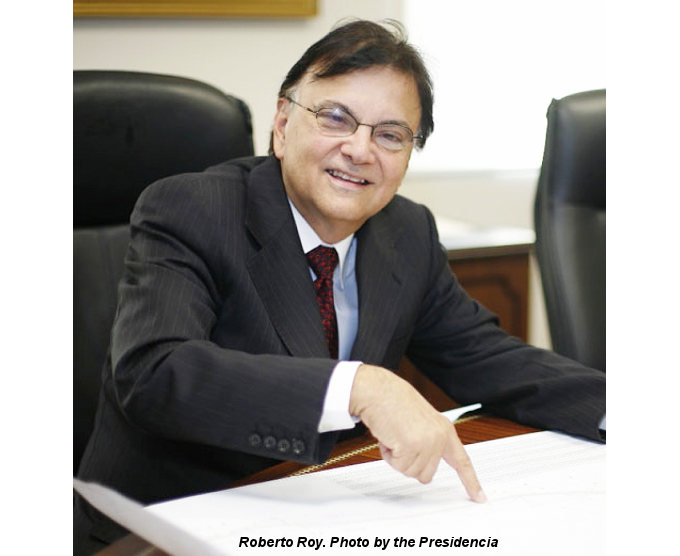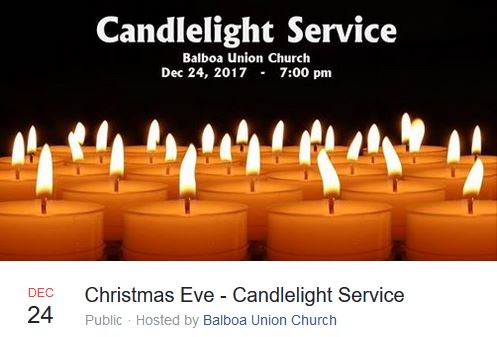
Bribe router says that the Minister of Canal Affairs
and head of the Metro took a bribe from FCC
by Eric Jackson
In his public persona, Roberto Roy wears two hats. He is a member of Juan Carlos Varela’s cabinet in the role of Minister of Canal Affairs. As canal minister he is president of the Panama Canal Authority board of directors. He is also secretary general of the Metro commuter train system. The alleged bribe was in connection with a Metro construction contract, in which the companies awarded the job were a consortium of the notorious Brazilian company Odebrecht, with Spain’s FCC as a junior partner.
In his private business life, which he apparently has not entirely set aside over the three decades in which he has held various public posts, Roy is the founding president of R-M Construction and former president of the Panamanian Chamber of Construction, a former director of Bancolat and a former director of La Prensa. Public posts that he has occupied include membership on a panel that studied canal expansion possibilities in the mid and late 90s when the canal was under US administration, and membership on the boards of directors of the Panama Canal Authority, the Panama Maritime Authority and the state-owned Caja de Ahorros.
And so it is that the Panama Canal Authority that already had two of its board members in hiding with INTERPOL warrants out for their arrests now has a third board member, the Minister of Canal Affairs who presides over the body, immersed in scandal. The timing of and route by which Roy is called out in public is obscure and a bit odd. Mr. Tacla Durán’s testimony was given in Spain last July, the prosecutors of the Public Ministry got those data in early November — so the ministry says — and in any case the ordinary prosecutors would not have jurisdiction over the allegations highlighted over the long Christmas holiday weekend. Tacla names President Varela and Roy, who by virtue of their jobs could only be investigates and tried by the National Assembly; and former president Ricardo Martinelli, who as a member of the Central American Parliament many only be investigated and tried by the Supreme Court.
The testimony indicates that Roy took a bribe from the Spanish construction company FCC. That company is now controlled by the Mexican billionaire Carlos Slim but at the apparent time of the alleged transaction he was only a minority shareholder. Slim, the owner of Claro.com, is also the biggest shareholder in The New York Times.
On the face of it, some or all of Tacla’s story may be hearsay. He was the external lawyer for Odebrecht in charge of setting up secret bank accounts through which billions in bribes going to public officials in more than a dozen countries were laundered, mainly through shell companies. The Odebrecht executive in charge of the “structured transactions” bribery and kickback unit was André Rabello. In Brazil, Rabello turned state’s evidence some time ago and would be expected to either support Tacla’s version or deny it, such that there would be less of a hearsay problem. In Panamanian law there is not as strict a ban on hearsay as in the US system, but “(s)he told me” tales are given much less weight than the stories of those who were direct participants in a transaction.
Roy is in taunting mode, saying that there is no evidence against him and threatening unspecified consequences if anyone brings a charge against him. But of course the testimony of Tacla is evidence, as would be any testimony of Rabello if he has essentially the same story to tell. Then there are some unusual circumstances by which Odebrecht and FCC got contracts for the Metro and circumstantial evidence can also be devastating proof. Starting from those things one conducting an investigation would go in search of a corroborating paper trail. Be all that as it may, the legislature almost surely will investigate neither Varela nor Roy.
Roy has invoked his family, and on Twitter there is a flurry of character witness tweeting, generally to the point that Roy is a wonderful guy from a great family. That may work, given the way that Panama works. However, most Panamanians are not members of the illustrious families and a lot of them resent those who are and who flaunt such ties for personal gain or protection. While the current political, judicial and prosecutorial castes will be unmoved by any public disgust, this sort of thing is likely to be a central issue of 2019 elections.
Perhaps of more consequence are resentments harbored abroad, of companies that didn’t get Panamanian contracts because they were unwilling to play Odebrecht games, of governments losing tax revenue due to their cheating citizens laundering assets through the Panamanian banking and construction industries.
Who is related and what is related is a favorite rabiblanco pseudo-scientific shell game. The misdirection breaks down, however, as institutions like the European Union express their weariness with Panamanian games by imposing financial sanctions on this country. Even if all the most respectable spokespeople for all the right families say that there is no relationship between situations like this and a reputation that gets Panama sanctioned.
~ ~ ~
These announcements are interactive. Click on them for more information.











